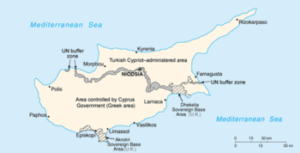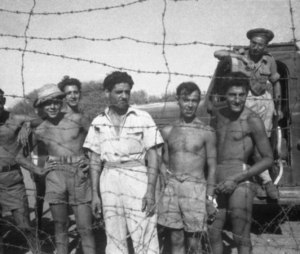 Jews were in Cyprus as far back as antiquity and formed a sizeable and thriving community under Roman rule. The presence of three ancient synagogues on the island attests to their prosperity. However, Cypriot Jews were banned from living on the island during the reign of Trajan as punishment for participating in a Jewish revolt against the Romans. This did not last long, as Jews returned to the island shortly thereafter.
Jews were in Cyprus as far back as antiquity and formed a sizeable and thriving community under Roman rule. The presence of three ancient synagogues on the island attests to their prosperity. However, Cypriot Jews were banned from living on the island during the reign of Trajan as punishment for participating in a Jewish revolt against the Romans. This did not last long, as Jews returned to the island shortly thereafter.
The Jewish community in Cyprus continued to thrive throughout the centuries, and between the twelfth and fifteenth centuries, there were more Jews in Cyprus than on any other Greek island. Though Cypriot Jews suffered some discrimination under various administrations, King Peter I promised Jews equal treatment in the fourteenth century. This proclamation was followed by the arrival of Jewish traders from Egypt, and by the late middle ages, there were Jewish communities throughout the island.
 However, the annexation of the island by the Ottoman Empire in the late sixteenth century saw a number of Jews leave Cyprus. Throughout the Ottoman period, the Jewish community was small, and few records exist describing Jewish life on the island during Ottoman rule. After the island came under English rule in 1878, there were attempts to establish Jewish agricultural settlements on Cyprus, but the mainly Russian and Romanian Jewish settlers that tried to do so found little success.
However, the annexation of the island by the Ottoman Empire in the late sixteenth century saw a number of Jews leave Cyprus. Throughout the Ottoman period, the Jewish community was small, and few records exist describing Jewish life on the island during Ottoman rule. After the island came under English rule in 1878, there were attempts to establish Jewish agricultural settlements on Cyprus, but the mainly Russian and Romanian Jewish settlers that tried to do so found little success.
After World War II and the Holocaust, there were tens of thousands of Holocaust survivors incarcerated on the island by the British for trying to illegally enter Palestine. After the establishment of the State of Israel in 1948, most of these survivors made aliyah, and by the following decade, the Cypriot Jewish community had dramatically shrunk in population.
In 1951, only 165 Jews remained on the island, engaging in citrus growing, trade, industry, farming and mining. By 1970, only 25 Jews were left. The Jewish community today is somewhere between 200 to 2,000. Most of these are from Israel, the former Soviet Union, Great Britain, South Africa and the United States.